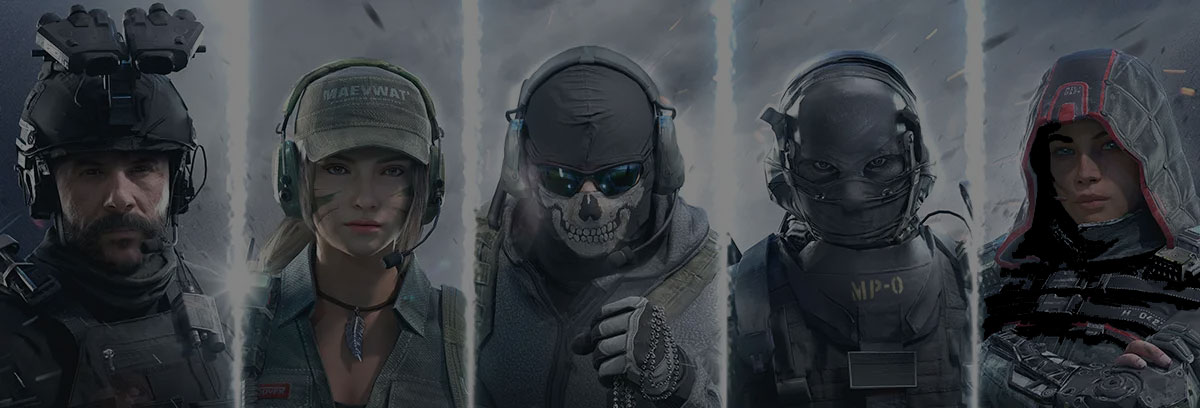November 13, 2020
Black Ops Cold War
Welcome to the Black Ops Cold War Landing Site, your hub for Blog-related official announcements, features, news, tactics, and tips.
Région sélectionnée : Canada Français

November 25, 2020
We sit down with David Goyer about his involvement in the Black Ops Cold War single-player experience, from his history with the franchise to how to develop engaging narratives for an interactive medium.
We sit down with David Goyer about his involvement in the Black Ops Cold War single-player experience, from his history with the franchise to how to develop engaging narratives for an interactive medium.
November 25, 2020
In 2010, the world was introduced to Black Ops, a mind-bending universe within the Call of Duty® franchise that rooted its Campaign in covert operations based on early Cold War events. In addition to members of the Treyarch (and eventually Raven) writing teams was Hollywood scriptwriter David Goyer. Known for his blockbuster superhero scripts, Goyer’s contributions also helped to define what a Black Ops Campaign felt like, complete with characters that became faces of the franchise in Alex Mason, Frank Woods, and Jason Hudson.
A decade later, the original Black Ops story got its direct sequel in Call of Duty: Black Ops Cold War. Along with the return of Mason, Woods, and Hudson, the game brought Goyer back into the fold as a story consultant, where he helped to push the boundaries of Cold War history, assisting in crafting a thrilling narrative centered around player choice.
To celebrate the game’s launch, we sat down with Goyer to get his perspective on creating these compelling narratives in video games, including how this Campaign goes deep beyond the surface of a traditional Call of Duty story.
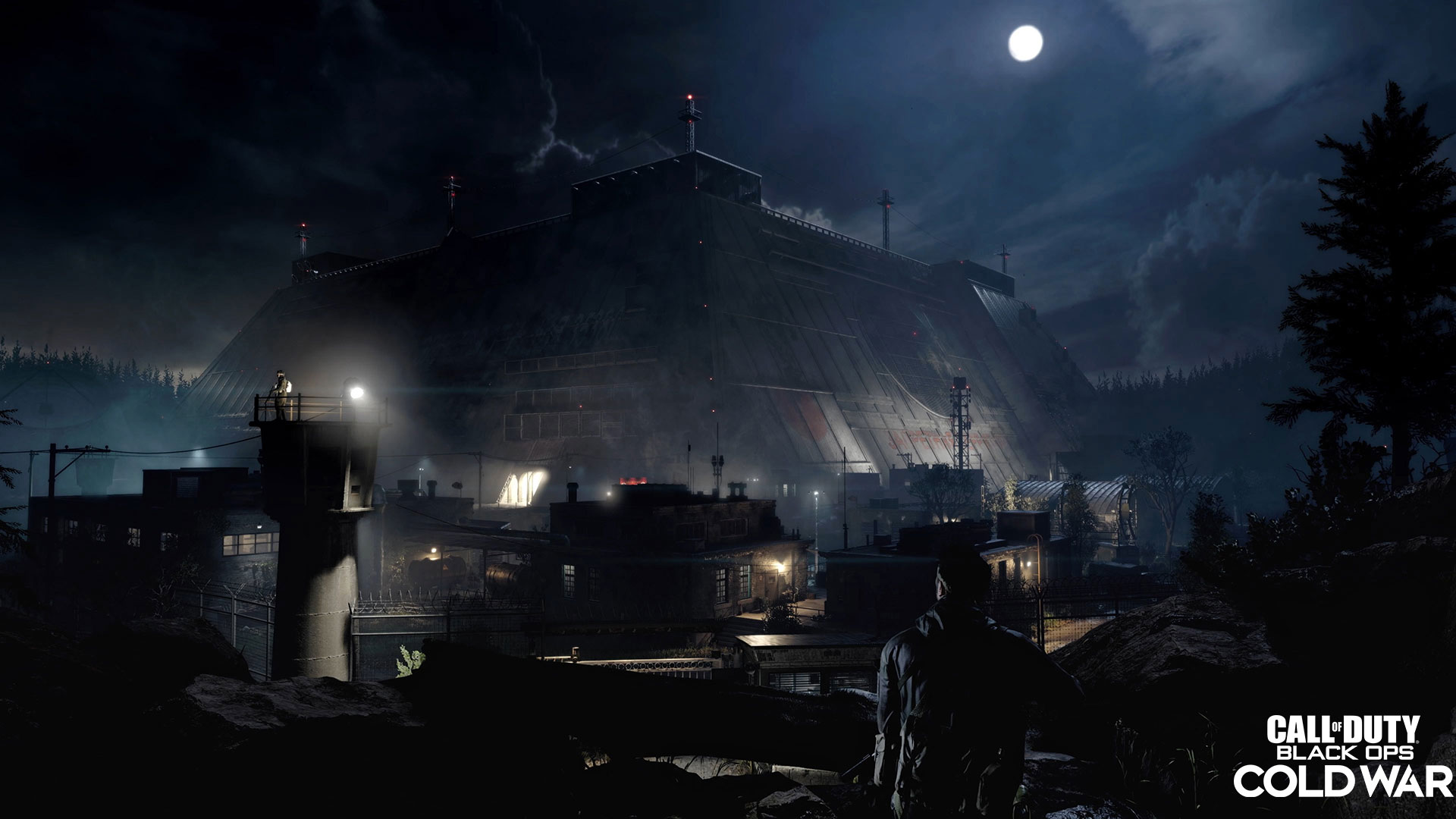
Activision Games Blog (AGB): First, what initially drew you into the original Call of Duty: Black Ops and got you excited about that project?
David Goyer (DG): I was a gamer and I had been interested in moving into games, but I hadn’t taken the plunge yet. I played some earlier iterations of Call of Duty and I knew it was a big franchise. So, when the game’s director called me, he said, “We want you to polish the script.” I thought that would be a great way to get my toes into it, so I met with the team.
I think the game was about two thirds of the way finished at that point, and I punched up the script and I made some other suggestions. It was fascinating for me — it was just a different medium in the way that you convey exposition is entirely different.
Sometimes, it’s helpful for an outsider to come in because I didn’t know what was possible and what was not possible from an engineering standpoint. There were certain things that we couldn’t work around or hack, but then I would say, “Yeah, but why not? Why can’t you do this?” And in some cases, we were able to figure out workarounds.
After that, they asked me to be involved in Black Ops II from the ground up. I had a hand in even helping the team design levels in gameplay, and pushed for multiple endings and branching narratives in the second game.
I know that when I’m playing a game, if I’m not in Multiplayer, I love the idea that there are multiple endings that can be achieved, depending on the moral choices that I make throughout the game. It was something that I was really pleased to see that Treyarch and Raven were continuing on with this new game. I liked the idea that actions have consequences. You can decide whether or not to assist an ally, or whether or not to cut them loose, or whether or not to exact revenge on someone. All of these actions have implications for the ending.
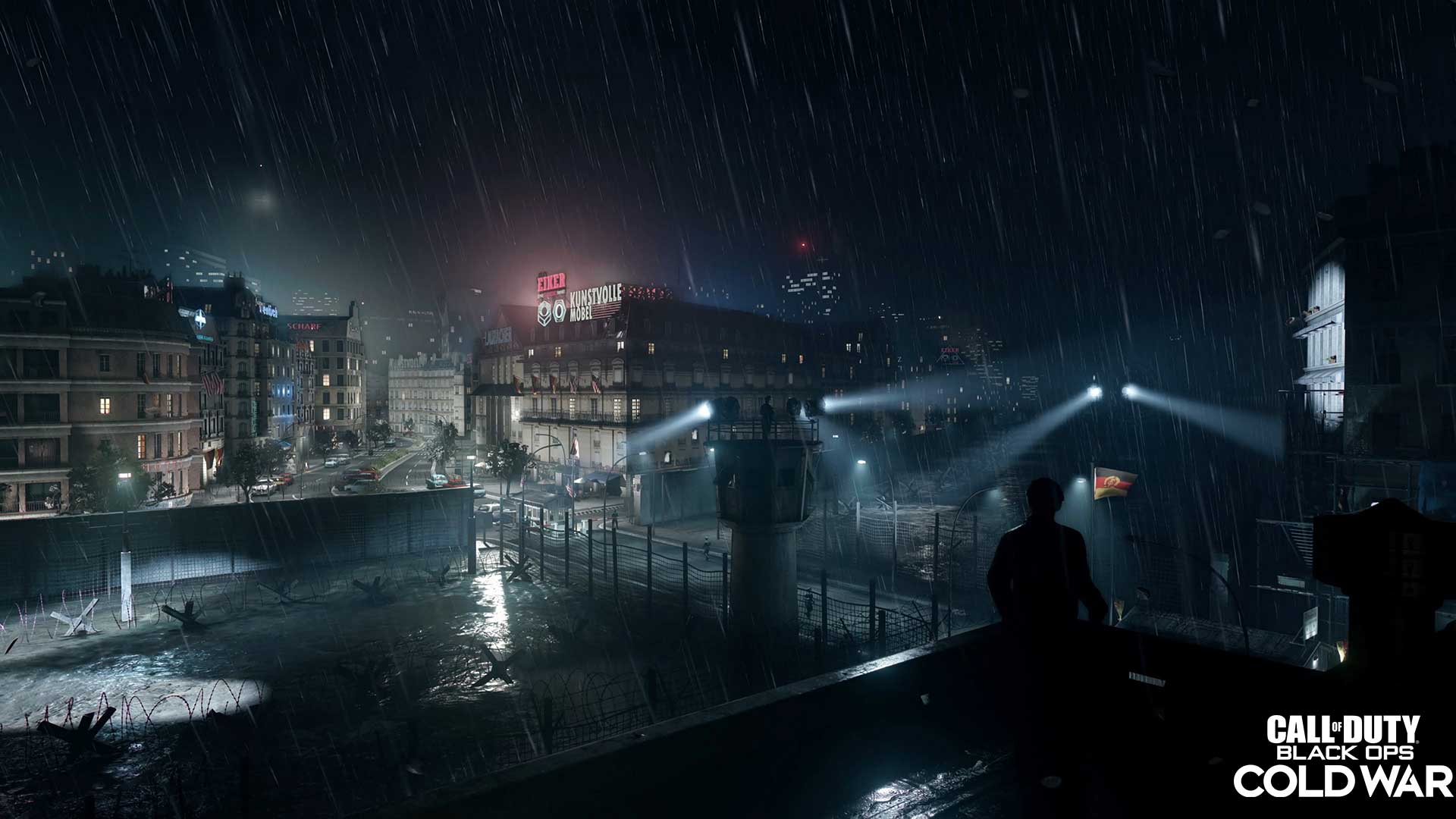
AGB: In Black Ops Cold War, the main protagonist is a custom character. How do you approach not only their character development, but also character development as a whole in this non-linear narrative?
DG: This was already baked into the concept, and I think I pushed them a little more, but one of the innovations that Raven and Treyarch brought into it was that as the player, you had the ability to design your own character. Based on what you as the player decide when you’re starting the game, we adjust to that. That’s part of what makes each experience more personal to the player.
Every time someone plays, it’s going to be a little different because of that, and characters respond in a slightly different way. When we were working on the scripts, we needed to come up with six different responses to something, but that’s part of the fun.
AGB: Is that one way you made this Campaign a compelling experience, whether it’s someone’s first run-through or the tenth? What else was important to do in crafting the narrative around multiple playthroughs?
DG: Obviously, you can play it a second time and create a different character.
As a player, you would see that the characters in the game around you behave in a different way. But beyond that, there are a lot of very real offramps or decision trees that the player is presented with throughout the game. There are some quite different endings; obviously, we’re not going to reveal those right now, but there are some dramatically different endings that one can be presented with. Different characters can live or die, and the fate of the world is quite different in the choices that the player makes throughout the game.
I think that’s become one of the hallmarks of the Black Ops series. Yes, we brought back some of the greatest hits characters like Mason and Woods and Hudson, but I think one of the other hallmarks of the franchise is that it’s uncompromising. It does have that veneer of authenticity, that it does feel very real. A lot of the missions are rooted in real, deniable operations or things that were exposed with the Freedom of Information Act, and we don’t pull any punches.
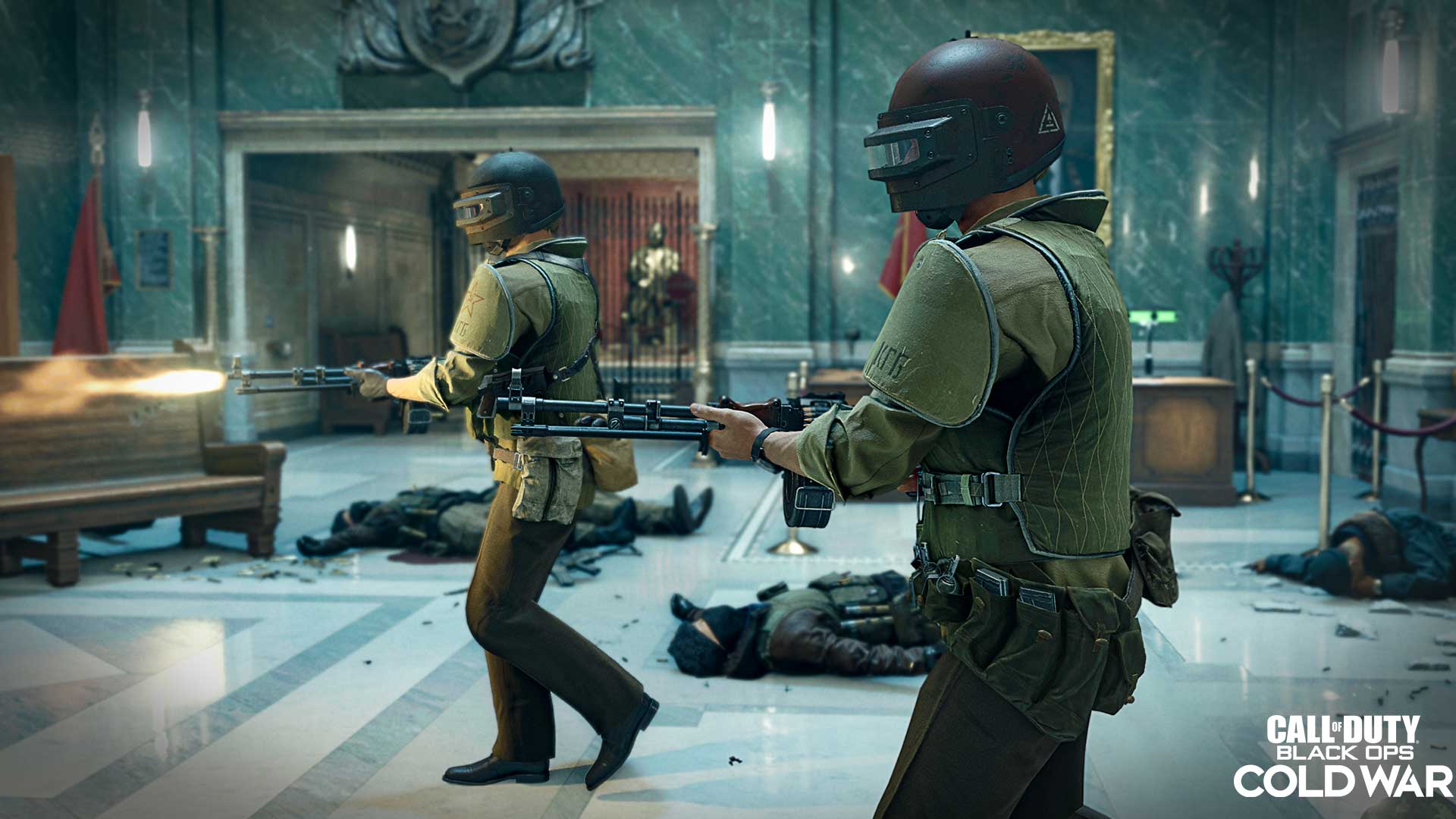
AGB: Because you bring up a historical perspective and these missions being rooted in the Cold War and Vietnam eras, how much research are you doing into those various eras to map out the narrative structure? How important is it to keep it grounded or referenced in that history while still crafting that interesting narrative?
DG: I’m a big believer in research, even in something that takes place in science fiction. The more that you can root it in reality, the easier it is to make a successful piece of escapism.
Since this is a franchise rooted in plausible authenticity, research is key. The more authentic if feels, I think the easier it is to lose yourself in it. That’s just what I appreciate as a viewer and a player. You can really tell that the creators did their homework.
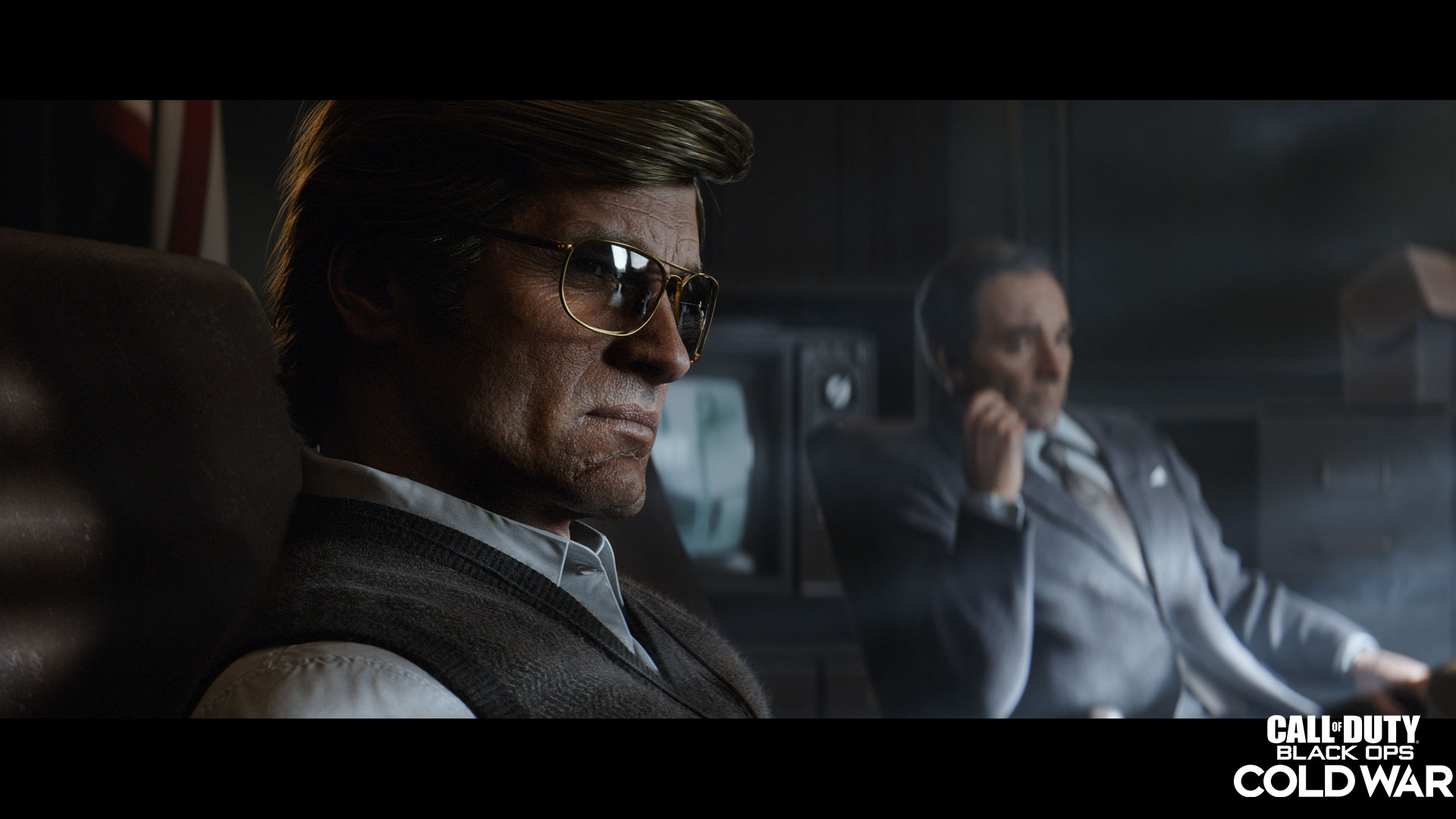
AGB: One of the other things that you come to expect from a Black Ops game is these big characters that were crafted nearly a decade ago being reintroduced in Mason, Woods, and Hudson. What was important in trying to reintroduce those characters, both to veterans of the franchise and people who are playing a Black Ops game for the first time?
DG: I’ve gotten involved in either refreshing or rebooting a lot of franchises over my career. The key is always that it has to work on two levels.
You need to make sure that people that are new to the franchise aren’t lost and they don’t feel like there are a lot of references that are going over their heads. You have to walk this fine line and say, “Does this work for people that are totally new to the franchise?” At the same time, are we sticking true to the characters and to the fans of the first Black Ops? Are these characters – Mason, Woods, and Hudson — do they feel like the same characters that the players have known and grown to love?
You write what feels right for the characters, but what I said to everybody at Raven and Treyarch is, “Okay, we’ve done that; now let’s put on our newbie hats and make sure that it doesn’t feel like it’s too inside baseball.” And that’s the key: that it does not feel too inside baseball, but at the same time not leaving the early adopters and original fans feeling bored. In the first game, the player was Mason. In Black Ops Cold War, Mason, Woods and Hudson are supporting characters. Part of the fun is they retain those character attributes—I don’t want to give away too much, but you get to see how they ping-pong off of the character that the player creates.
AGB: Would you also say that they ping-pong off Adler and Park, and this new team that comes in? How important was it to bring in those new characters and have them fit within some of the most legendary COD characters?
DG: I wish I could take credit for Adler. I helped embellish Adler, but Adler was definitely a character that Raven had already come up with. I really dug the character, so I made a number of suggestions for specificity. What are the kinds of cigarettes that Adler smokes? What’s the kind of music? What kind of drink he likes to drink? Things like that.
But the other part of it that was fun was in real life, in real Black Ops operations, there are men and women, agents and assets, from every country and every race that get involved in these operations. That was something that we worked hard on in this; to really broaden the palette and broaden the story. So you got characters that have had backgrounds in the Mossad and other kinds of intelligence agencies that are getting involved in the story that, again, bring their own level of authenticity and specificity to the characters.

AGB: What are some of the themes that you tried weaving into the narrative? How did you maintain keeping players emotionally engaged with the story, as they’re trying to survive these massive firefights and big blockbuster moments that Call of Duty known for?
DG: Call of Duty is definitely known for that. Black Ops is known for twists and turns, for paranoia. Players have come to expect that, and come to expect that at various points we’re going to pull the rug out from under them. The story isn’t predictable.
Again, I don’t want to give away too much, but mind-bending paranoia is definitely one of the hallmarks of the Black Ops franchise and something we definitely didn’t shy away from in this one. To a certain extent, Black Ops Cold War is a return to what works so well from the first one. Also, we reference a number of real, deniable operations within the game. I think it will be fun for people to go down an internet rabbit hole after you’ve gone through the game once, and realize how much of this is spring-boarded off of reality. And some of the stuff is quite shocking.
The big bad of the game is a sort of legendary agent called Perseus that is presumed to be a real secret agent that was out there, and to this day no one knows exactly who Perseus was, or whether or not Perseus was male or female, or even to what extent Perseus had compromised Western intelligence. But it does seem like there actually was someone with the codename Perseus out there. Just the fact that the boogeyman of our game is somebody that really existed is exciting to me.
AGB: You touched a bit in the beginning about the difference between writing for TV and film versus games. How exactly is the process different? And specifically, how much of it is collaborative with Raven and Treyarch?
DG: Writing for a game is completely different than writing for film and television, which is a totally linear, passive experience. Which doesn’t mean that you can’t have amazing narratives. But by its very nature, watching film or streaming TV shows is passive. You are completely in the hands of the director or the showrunner.
Gaming by its nature is not passive, it’s interactive. It’s collaborative. When I’m a player in a game, I want to feel that I have agency. I want to feel that I’m not completely on rails and that the choices I make can affect the outcome. One of the things that I try to suggest from the very first Black Ops game, that I was thrilled Raven and Treyarch continued on with, is the idea of imposing moral choice on the player, especially in the world of espionage and counterintelligence, where morality is so slippery.
Working in video games by its nature has to be more collaborative than in film or television. In film, generally it’s the director, and in TV, it’s the showrunner who have the final decision in everything, because it’s this passive, novelistic experience. But Treyarch and Raven were immensely collaborative, and in some ways, I was much more open to collaborating than I might be on one of my own shows. (Laughs)
I’m still relatively new to the video game field, and to this day the only franchise I’ve worked on is Call of Duty: Black Ops. I joke, but it’s true: it’s fun sometimes to be lower on the learning curve, that you can be surprised again. It’s what keeps things fresh, and exciting. I would throw out crazy ideas to Treyarch and Raven, “Can we do this? Can we do that?” That was part of my job. Sometimes the ideas were too crazy and we couldn’t, sometimes they would say, “Hmm. No one’s ever thought of that before. Maybe we can do that. Why not?” That’s been fun, and I’m enormously respectful of the world and the universe they’ve created.
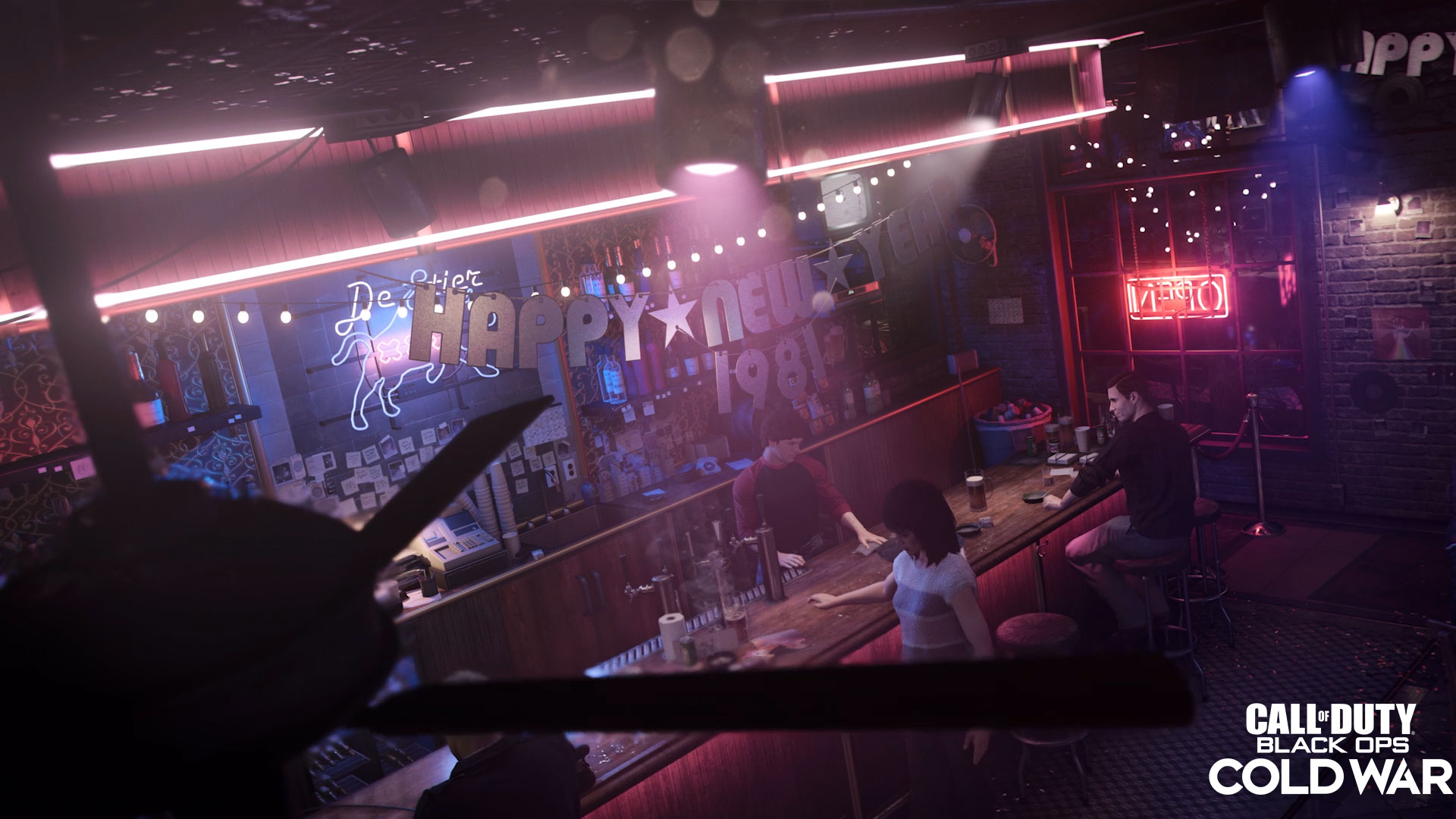
AGB: One last question: how does this game’s first mission – Nowhere Left to Run – set the stage for what players can expect in the rest of the Campaign?
DG: If the players are paying close attention, they’ll see that in some ways that first level is a kind of microcosm of what’s going to happen in the rest of the Campaign and the game.
Part of the fun of the replayability will be when people go back to that first level again and play through it again, having arrived at one ending and really think about interactions that might seem kind of off the cuff or possibly more important than the player realizes.
You can purchase Call of Duty: Black Ops Cold War on CallofDuty.com.
For more information on Call of Duty®: Black Ops Cold War, check out: www.callofduty.com, www.youtube.com/callofduty and follow @Treyarch, @RavenSoftware, and @CallofDuty on Twitter, Instagram, and Facebook.
© 2020 Activision Publishing, Inc. ACTIVISION, CALL OF DUTY, and CALL OF DUTY BLACK OPS are trademarks of Activision Publishing, Inc.
For more information on Activision games, follow @Activision on Twitter, Facebook, and Instagram.
